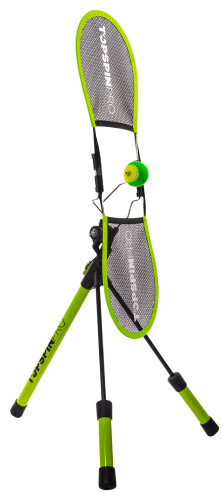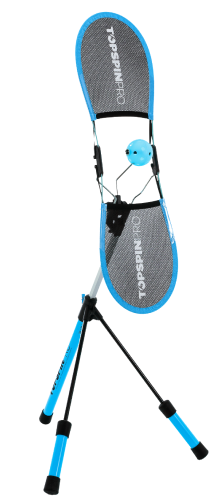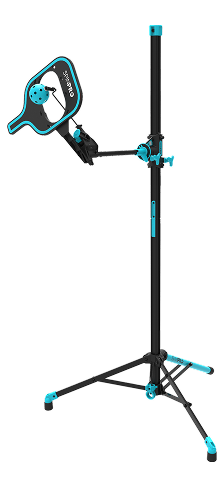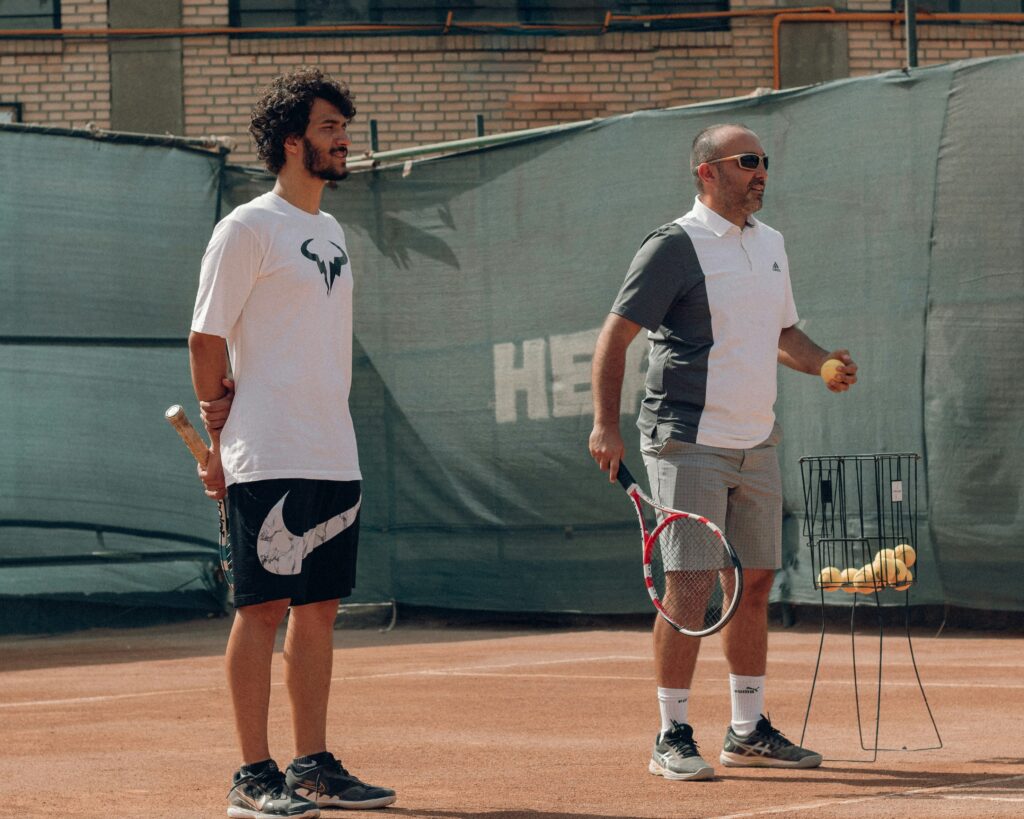Wenn Sie Ihr Tennisspiel verbessern möchten, haben Sie sich wahrscheinlich schon einmal gefragt: "Sollte ich mir einen Tennistrainer suchen?" Diese Frage stellen sich Spieler aller Spielstärken, von Anfängern bis hin zu fortgeschrittenen Spielern. Die Wahrheit ist, dass ein Tennistrainer eine der effektivsten Methoden sein kann, um Ihre Fortschritte zu beschleunigen, aber es ist nicht immer die richtige Wahl für jeden. In diesem Artikel gehen wir auf die Vor- und Nachteile der Zusammenarbeit mit einem Tennistrainer ein, auf die verschiedenen Arten des Coachings und darauf, wie Sie entscheiden können, ob dies der richtige Schritt für Ihre Tennisreise ist.
In ein Training zu investieren bedeutet, Zeit, Geld und Engagement zu investieren. Für viele Spieler zahlt sich diese Investition durch eine bessere Technik, ein tieferes Verständnis des Spiels und mehr Selbstvertrauen auf dem Platz aus. Andere wiederum finden vielleicht, dass ihre Ziele, ihr Budget oder ihr Lernstil besser zu einer selbstgesteuerten Verbesserung passen. Schauen wir uns die Optionen an:
Die Vorteile eines privaten Tennistrainers
Strukturiertes Lernen
Anstatt von einer YouTube-Übung oder einem Video zum nächsten zu springen, gibt Ihnen ein Trainer eine klare Progression vor, der Sie folgen können. Ganz gleich, ob Sie Ihrer Vorhand mehr Topspin verleihen, Ihre Aufschlagskonstanz verbessern oder sich auf ein USTA-Turnier vorbereiten möchten, Ihr Trainer wird einen Plan erstellen, der Ihren Zielen und Ihrem Spielniveau entspricht. Es ist wichtig, dass Sie beim Lernen strukturiert und progressiv vorgehen, um sich mit optimaler Geschwindigkeit zu verbessern. Hier ist ein Leitfaden für den besten Weg zum Fortschritt: Wie Sie Ihr Tennis schnell verbessern: Leitfaden zur Progression der Tennisfähigkeiten
Experten-Feedback
Ein qualifizierter und erfahrener Trainer kann schnell Schwächen oder Ineffizienzen in Ihren Schlägen, Bewegungen und Entscheidungen erkennen. Das sind oft Dinge, die Sie allein oder durch das Ansehen von Online-Videos nicht erkennen können. Mit rechtzeitigen Korrekturen und Hinweisen kann ein Coach Ihnen helfen, sinnvolle Änderungen vorzunehmen, bevor sich schlechte Gewohnheiten einstellen. Er kann Ihnen auch dabei helfen, zu entscheiden, auf welche Bereiche Ihres Spiels Sie sich am besten konzentrieren sollten, um sie zu verbessern. Das ist etwas, das ohne die Hilfe eines Experten schwer zu entscheiden ist.
Verantwortlichkeit und Motivation
Es ist viel einfacher, motiviert und beständig zu bleiben, wenn jemand Ihre Fortschritte verfolgt, Sie herausfordert und Sie zur Verantwortung zieht. Regelmäßiger Unterricht verleiht Ihrem Training eine zusätzliche Ebene der Disziplin. Ein guter Trainer ist auch eine gute Quelle der Ermutigung, wenn es schwierig wird. Außerdem ist es wahrscheinlicher, dass Sie zwischen den Unterrichtsstunden ein paar zusätzliche Übungen machen, um sicherzustellen, dass Sie Ihren Trainer nicht enttäuschen!
Unterstützung
Das wird oft übersehen, wenn es um Gründe geht, einen Coach zu engagieren. Ein Coach kann am Ende Ihr Freund und Mentor sein. Enge Beziehungen können entstehen, wenn man zusammen auf gemeinsame Ziele hinarbeitet. Ein professioneller Coach, der aus den richtigen Gründen unterrichtet, ist stolz darauf, mit Ihnen auf dem Weg zu sein. Für ihn ist es wichtig, dass Sie sich verbessern, und er wird Sie auf Ihrem Weg unterstützen. Es ist auch wichtig, dass Sie jemanden bezahlen, mit dem Sie gerne Zeit verbringen, also wählen Sie mit Bedacht!
Mentale Stärke und Strategie
Über die Technik hinaus zeigen die Trainer oft auch die mentale und taktische Seite des Tennisspiels, wie man unter Druck ruhig bleibt, sich auf verschiedene Gegner einstellt und mit Schwungveränderungen während eines Matches umgeht. Diese nicht greifbaren Fähigkeiten können das Spiel verändern und werden oft nicht so gut gelernt, wenn man sie sich selbst beibringt. Es ist auch hilfreich, wenn jemand auf die Körpersprache und die Entscheidungsfindung hinweist, was in einem "emotionalen Moment" schwer zu erkennen ist.
Die Nachteile eines privaten Tennistrainers
Kosten
Privatunterricht kann eine beträchtliche Investition sein, vor allem wenn Sie mehrere Sitzungen pro Woche nehmen. Gruppenunterricht und Seminare sind zwar erschwinglicher, bieten aber oft nicht die persönliche Betreuung, die für schnelle Fortschritte erforderlich ist. Wenn Sie Geld für Nachhilfeunterricht ausgeben wollen, ist es sowohl für Sie als auch für Ihren Trainer wichtig, dass Ihr Engagement der Investition entspricht. Wenn Sie sich eine kontinuierliche Nachhilfe nicht leisten können, empfiehlt es sich, eine Reihe von Unterrichtsstunden mit einem klaren Ziel vor Augen zu kaufen. Nutzen Sie diese Zeit, um so viel wie möglich zu lernen, und nehmen Sie sich dann Zeit, selbständig zu üben, bevor Sie zu einem weiteren Block zurückkehren. Auf diese Weise können Sie effektiv Geld sparen und gleichzeitig motiviert und auf Kurs bleiben.
Zeitliche Bindung
Beständigkeit ist entscheidend, wenn es darum geht, echte Fortschritte im Coaching zu erzielen. Das bedeutet, dass man sich regelmäßig Zeit für den Unterricht und das Training nehmen muss, was für diejenigen, die viel arbeiten, häufig reisen oder familiäre Verpflichtungen haben, eine Herausforderung sein kann. Wenn die Zeit begrenzt ist, sollten Sie sich kurze, konzentrierte Trainingsblöcke mit einem klaren Ziel vornehmen und dann eine Pause einlegen, bevor Sie den nächsten Block beginnen. Auf diese Weise bleibt das Lernen strukturiert und effektiv, selbst bei einem hektischen Zeitplan.
Die Suche nach dem richtigen Coach
Coaching ist eine Beziehung, und es kann einige Zeit dauern, einen Coach zu finden, der zu Ihrer Persönlichkeit, Ihren Zielen und Ihrem Lernstil passt. Wenn der Coach nicht zu Ihnen passt, kann sich der Unterricht frustrierend anfühlen oder Sie sogar vom Spielen abhalten. Sie möchten den Unterricht ermutigt verlassen, weiter hart zu arbeiten, auch wenn Sie einen schlechten Tag haben!
Selbst-Bewusstsein
Auch wenn das Coaching unglaublich wertvoll ist, ist es ebenso wichtig, auf dem Spielfeld Eigenständigkeit zu entwickeln. Manche Spieler verlassen sich zu sehr auf ständiges Feedback und haben Schwierigkeiten, während des Spiels Problemlösungen zu finden. Im Gegensatz dazu sind viele der besten Spieler der Welt Autodidakten oder haben neben dem Coaching starke analytische Fähigkeiten entwickelt. Der Aufbau eines eigenen Spielverständnisses, auch wenn Sie mit einem Trainer zusammenarbeiten, kann Ihre Fortschritte beschleunigen und Sie zu einem selbstbewussten, anpassungsfähigen Spieler machen.
Druck zur Verbesserung
Ein Trainer erhöht oft den Leistungs- und Verbesserungsdruck. Für die einen ist das motivierend, für die anderen kann es dazu führen, dass Tennis weniger Spaß macht oder sich eher wie eine lästige Pflicht anfühlt. Tennis sollte immer Spaß machen. Sobald es diese Grenze überschreitet, sollten Sie überprüfen, wohin sich Ihr Spiel entwickelt.
Verfügbare Arten von Tennisunterricht
Wenn Sie noch zögern, in einen Privatcoach zu investieren, gibt es viele Möglichkeiten, zunächst in die Materie einzutauchen, ohne sich langfristig zu binden. Das Ausprobieren verschiedener Coaching-Formate kann Ihnen helfen, ein Gefühl dafür zu bekommen, welcher Stil und welcher Ansatz am besten zu Ihnen passt. Hier sind ein paar gute Optionen, um das Wasser zu testen:
Gruppenunterricht und Kliniken
Trainieren Sie mit anderen Spielern, die ein ähnliches Leistungsniveau haben. Gruppenunterricht ist günstiger, bietet ein soziales Element und konzentriert sich oft auf Übungen und Matches. Es ist eine gute Möglichkeit, neue Freunde und Trainingspartner zu finden und den Unterricht mit verschiedenen Trainern auszuprobieren. Diese Art von Unterricht kann oft von Woche zu Woche gebucht werden, so dass Sie in Ihrem Zeitplan flexibler sind.
Kliniken und Workshops
Kurzfristiges, intensives Training, das sich auf bestimmte Fähigkeiten wie Aufschlag, Volleyball oder Strategie konzentriert. Ideal für gezielte Verbesserungen. Diese Art von Coaching findet oft in Blöcken statt, und Sie verpflichten sich zu einer bestimmten Anzahl von Lektionen. Dies ist eine gute Möglichkeit, sich für einen bestimmten Zeitraum auf die Verbesserung Ihres Spiels zu konzentrieren.
Video-Analyse
Übermitteln Sie Spiel- oder Übungsvideos an einen Trainer, der detailliertes Feedback gibt. Dies kann den traditionellen Unterricht ergänzen oder als eigenständiges Fernlerninstrument dienen. Es ist auch eine gute Möglichkeit, Einblicke von Trainern zu erhalten, die nicht in Ihrer Nähe wohnen, aber Ihnen gute Ratschläge geben können. Hier ist ein Beispiel von TopspinPro Erfinder Phil's Rückhand-Lektion mit Ryan Reidy bei 2minutetennis.net


Schlagpartner/Praxiscoaches
Weniger formell, aber dennoch wertvoll. Das sind starke Spieler, die sich mit Ihnen treffen, leichte Tipps geben und Ihnen helfen, Ihre Schläge zu verfeinern. Die Wahl der richtigen Unterrichtsform hängt von Ihren Zielen, Ihrem Budget und Ihren Lernvorlieben ab. Diese Option ist oft billiger als eine Privatstunde.
Tennis-Urlaub
Eine der schönsten Möglichkeiten, sich intensiv auf Ihr Spiel zu konzentrieren, ist eine Tennisreise. Diese können im In- oder Ausland stattfinden. Eine großartige Möglichkeit, neue Tennisfreunde kennenzulernen und an einem anderen Ort zu spielen, wo es keinen Druck gibt!
Online-Nachhilfe
Greifen Sie über virtuelle Plattformen auf Online-Kurse, Lektionen, Feedback und Übungsprogramme zu. Perfekt, wenn Sie Flexibilität bevorzugen oder nicht so leicht Zugang zu persönlichem Coaching haben. Wir bieten unsere eigene Version des Online-Coachings für Anfänger und Fortgeschrittene an, um Vorhand und Rückhand zu trainieren. Sehen Sie sich diese unten an:
TOPSPINPRO EINSTEIGERKURSE
Wir nutzen die neuesten neurowissenschaftlichen Erkenntnisse in unseren TopspinPro Online-Kurse. Schauen Sie sich die Kurse an und erhalten Sie ausführliche Hilfe bei der Entwicklung Ihrer Schläge:


Wie Sie entscheiden, ob Sie einen Tennistrainer engagieren sollten
Fragen Sie sich selbst:
- Möchte ich mich verbessern? (Wettbewerbsspiel, Erreichen einer bestimmten Bewertung usw.).
- Bin ich bereit, Zeit, Geld und Mühe zu investieren?
- Lerne ich besser mit Struktur und Feedback?
- Ich stehe auf einem Plateau und weiß nicht, wie ich mich verbessern kann?
Wenn Sie die meisten dieser Fragen mit "Ja" beantwortet haben, könnte die Zusammenarbeit mit einem Trainer eine der besten Investitionen in Ihre Tennisreise sein. Wenn Ihr Schwerpunkt jedoch auf reinem Gesellschaftstennis liegt oder Sie es vorziehen, mit YouTube-Videos, Übungswänden und Schlagpartnern in Ihrem eigenen Tempo zu lernen, werden Sie vielleicht auch ohne formelles Coaching erfolgreich sein.
Abschließende Überlegungen
Ein Tennistrainer kann das Spiel verändern... im wahrsten Sinne des Wortes. Er beschleunigt Ihr Wachstum, schärft Ihre Fähigkeiten und vertieft Ihr Verständnis für das Spiel. Aber es ist nicht für jeden ein Muss. Wählen Sie, was am besten zu Ihren Zielen, Ihrem Lebensstil und Ihrer Liebe zum Tennis passt.
Welchen Weg Sie auch immer einschlagen, denken Sie daran, dass die wahre Magie entsteht, wenn Leidenschaft und Ausdauer auf Praxis treffen.
FAQs
-
Sollte ich einen Tennistrainer engagieren, um mein Spiel zu verbessern?
Einen Tennistrainer zu engagieren, kann ein sehr effektiver Weg sein, um Ihre Fortschritte zu beschleunigen, indem Sie strukturiertes Lernen, Expertenfeedback und Motivation erhalten. Es ist jedoch wichtig, Ihre persönlichen Ziele, Ihr Budget und Ihren Lernstil zu berücksichtigen, um festzustellen, ob ein Coaching zu Ihrem Tennisweg passt.
-
Was sind die Vorteile der Zusammenarbeit mit einem privaten Tennistrainer?
Ein privater Tennislehrer bietet strukturiertes Lernen, fachkundiges Feedback, Verantwortlichkeit und Unterstützung. Er hilft Ihnen, mentale Stärke und Strategie zu entwickeln, um sicherzustellen, dass Sie effizient Fortschritte machen und während Ihres Trainings motiviert bleiben.
-
Welche Nachteile hat es, einen Tennistrainer zu engagieren?
Zu den größten Nachteilen gehören die Kosten, der Zeitaufwand und die Schwierigkeit, den richtigen Coach zu finden. Außerdem besteht die Gefahr, dass man sich zu sehr auf das ständige Feedback verlässt, was die Selbstwahrnehmung und die Problemlösungsfähigkeiten während des Spiels beeinträchtigen kann.
-
Welche Arten von Tennistraining gibt es?
Neben Einzelunterricht gibt es auch Gruppenunterricht, Kurse, Videoanalysen, Schlagpartner, Tennisurlaube und Online-Coaching. Jedes Format bietet einzigartige Vorteile, so dass Sie je nach Ihren Vorlieben, Zielen und Ihrem Budget wählen können.
-
Wie kann ich entscheiden, ob ein Tennistrainer das Richtige für mich ist?
Überlegen Sie, ob Sie sich verbessern wollen, ob Sie bereit sind, Zeit und Geld zu investieren, und ob Sie von einem strukturierten Feedback profitieren. Wenn Sie diese Fragen mit "Ja" beantwortet haben, könnte ein Coach eine gute Investition sein. Wenn Sie jedoch soziales Tennis oder selbstbestimmtes Lernen bevorzugen, kommen Sie vielleicht auch ohne formelles Coaching zurecht.
Hat Ihnen dieser Artikel gefallen?
Melden Sie sich für unseren Newsletter an und wir halten Sie über neue Beiträge auf dem Laufenden



